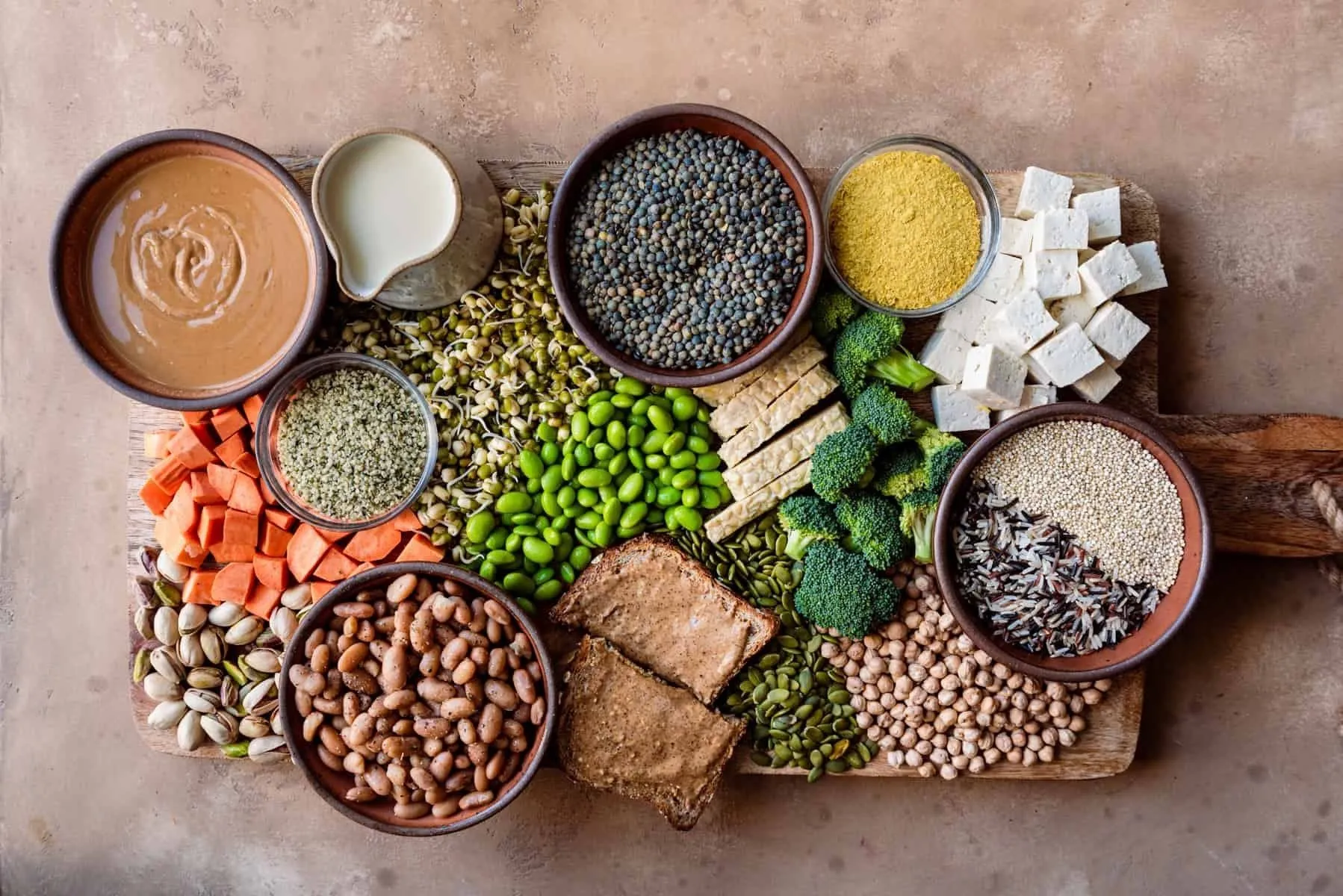
Protein is one of the three essential macronutrients required by our body. It is a high-molecular organic compound consisting of 21 amino acids. Of these, 12 can be synthesized by our body, but 9 remain essential — they must be obtained from food. Plant-based protein sources are an excellent way to diversify your diet, provide necessary nutrients, and even contribute to the planet’s health.
Why Is Plant-Based Protein Important?
Although animal protein is a complete source of all amino acids, plant-based protein has its own advantages:
- Plant-based foods are rich in fiber, which supports gut health.
- They contain less saturated fat compared to meat products.
- They are abundant in vitamins, minerals, and antioxidants.
- Their diversity adds unique beneficial nutrients to your diet.
Where to Find Protein in Plants?
Here is a list of the best plant-based protein sources to include in your diet:
Legumes:
- Black beans (24 g of protein/100 g)
- Lentils (up to 9 g of protein per serving)
- Chickpeas and chickpea flour (22 g of protein/100 g)
Grains and Seeds:
- Quinoa (14 g of protein/100 g) — contains all essential amino acids.
- Amaranth (14 g of protein/100 g) — an excellent alternative to grains.
- Pumpkin seeds (33 g of protein/100 g) — a source of protein and Omega-3 fatty acids.
- Flaxseed (18 g of protein/100 g) — an additional benefit is its fiber content.
Nuts and Oils:
- Almonds (21 g of protein/100 g)
- Hemp hearts (30 g of protein/100 g) — rich in healthy fats and minerals in addition to protein.
Seaweed and Superfoods:
- Spirulina (up to 60% protein by weight) — a true champion among plant-based sources.
- Seaweed (up to 40 g of protein/100 g depending on the type).
Fermented Products:
- Tempeh, natto, miso — sources of protein, probiotics, and enzymes for gut health.
Yeast:
- Nutritional yeast (50 g of protein/100 g) — an excellent vegan option that adds a "cheesy" flavor to dishes.
How to Make Your Diet Complete?
Plant-based protein does not always contain all essential amino acids, but this can be easily compensated by diversifying your meals. For example, combine:
- Quinoa or legumes with pumpkin seeds.
- Flaxseed or almonds with cereals for breakfast.
- Tempeh or chickpea paste with vegetable salads.
Plant-based protein sources are more than just an alternative to meat. They are a path to balanced nutrition, meeting the body's needs for amino acids, minerals, and vitamins while also helping to maintain ecological balance.



